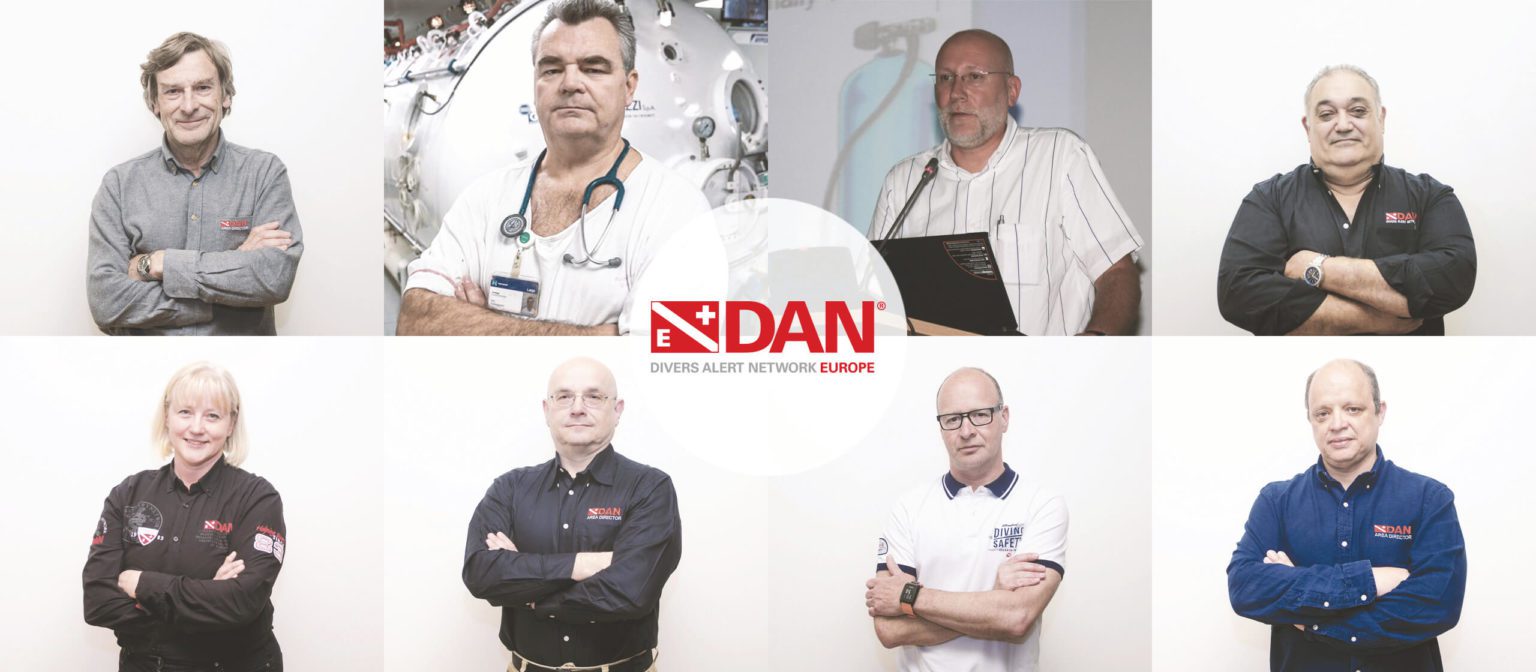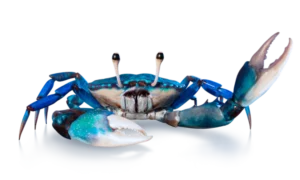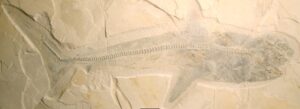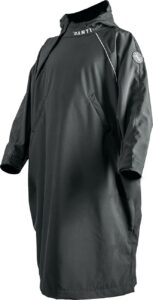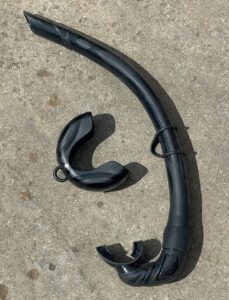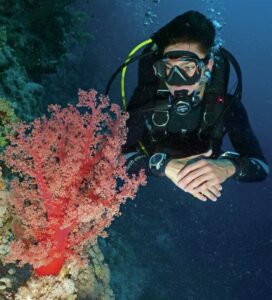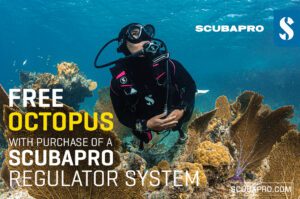There is still much we do not know about COVID-19, and information about the virus and its impact on divers is still evolving. For that reason, in addition to republishing the consensus medical recommendations compiled by the various diving and hyperbaric medical associations, we reached out to a number of DAN Europe physicians and asked them about their experience in the field dealing with divers wanting to return to diving after having had COVID-19.
Specifically, we queried the following physicians; Oscar Camacho (Portugal), Peter Germonpré (Belgium), Ole Hyldegaard (Denmark), Jacek Kot (Poland), Anne Räisänen-Sokolowski (Finland), Adel Taher (Egypt), Ulich van Laak (Germany) and Jürg Wendling (Switzerland). These doctors have each treated from two to 20 divers who suffered COVID-19. Dr Germonpré has only treated military divers, while Dr Camacho has treated commercial as well as recreational divers. Here is what they had to say.
DAN Europe: What has generally been your experience with those wanting to return to diving after having had Covid-19?
Oscar Camacho (OC): All the commercial divers during the acute disease were asymptomatic or with innocuous symptoms such as anosmia/dysgeusia (the loss of smell and taste). Regarding recreational diving, two divers were very sick. Both were hospitalized. One was admitted to a normal ward with non-invasive ventilation. Another was six weeks in the intensive care unit. All of the divers (commercial and recreational) were very concerned about their lung capacity to the ability to return to diving. The two recreational divers that were hospitalized had lung scans with suggestive images of bilateral fibrosis and tired easily, so I excluded them from returning to dive and will evaluate them again after six months.
Peter Germonpré (PG): All were subjected to the medical examinations as per military medical requirements (i.e, exercise test with SpO2, pulmonary function test, cardiological examination and pulmonary CT scan). Some were ‘grounded’ for three more months before being allowed to resume diving.
Ole Hyldegaard (OH): No problems or major respiratory issues.
Jacek Kot (JK): I acted as a medical consultant for a single individual wishing to return to diving.
Anne Räisänen-Sokolowski (ARS): All of them had had mild cases and were very eager to get back in the water as soon as possible.
Adel Taher (AT): Most of them appeared to be clinically free with good air entry on both sides. The history taking would reveal that they suffered COVID-19 or they would know and declare it up front. When in doubt I would ask for CT-Lungs. In several cases where the infection occurred less than two months ago, Ground Glass Opacifications (GGO) would appear, mostly basal. A follow up after a period of four and six months following the initial infection, showed resolution of the GGOs.
Ulich van Laak (UvL): Reluctant to follow the consensus recommendations in all three cases; they were seeking ‘quick’n'dirty’ permissions.
Jürg Wendling (JW): Most of the recreational diver and some professional divers followed our recommendations. All of our patients with mild to severe symptoms during acute COVID-19 had no signs of sequelae in the examinations according to the Swiss flowchart (we conducted a symptom-limited stress test with pulsoxymetry/body plethysmography and DLCO). I would like to note that my comments here are a compilation of experience from the most active diving medicine physicians of the Swiss Underwater And Hyperbaric Medical Society (SUHMS) who report monthly at online meetings about their experiences.
Any potential problem areas that divers should be aware of?
PG: We haven't seen ‘curious’ instances of DCS (after ‘innocent’ dives), but this is probably because of the restrictions we imposed early on (the Dutch Society of Diving and Hyperbaric Medicine (DSDHM) guidelines were already published as early as April 2020).
OH: Testing of lung function recommended (as a minimum) before resuming to diving if COVID-19 infection caused signs of pulmonary symptoms.
JK: Permanent changes to lung tissue (lower compliance) and lower exercise capacity
ARS: Lungs can be problematic.
AT: Oxygen saturation on exertion! Apparent changes on the spirometry results. A second opinion of a pulmonologist could be requested.
UvL: Published concerns like the Belgium Society of Diving & Hyperbaric Medicine (BSDHM) and others are not widely accepted or understood among the sport diving community. It's quite different in scientific diving abd military diving.
JW: There were no surprising experiences. Divers are informed about potential hazards that mostly manifest themselves through reduced physical performance. We share the alerts of the BSDHM group.
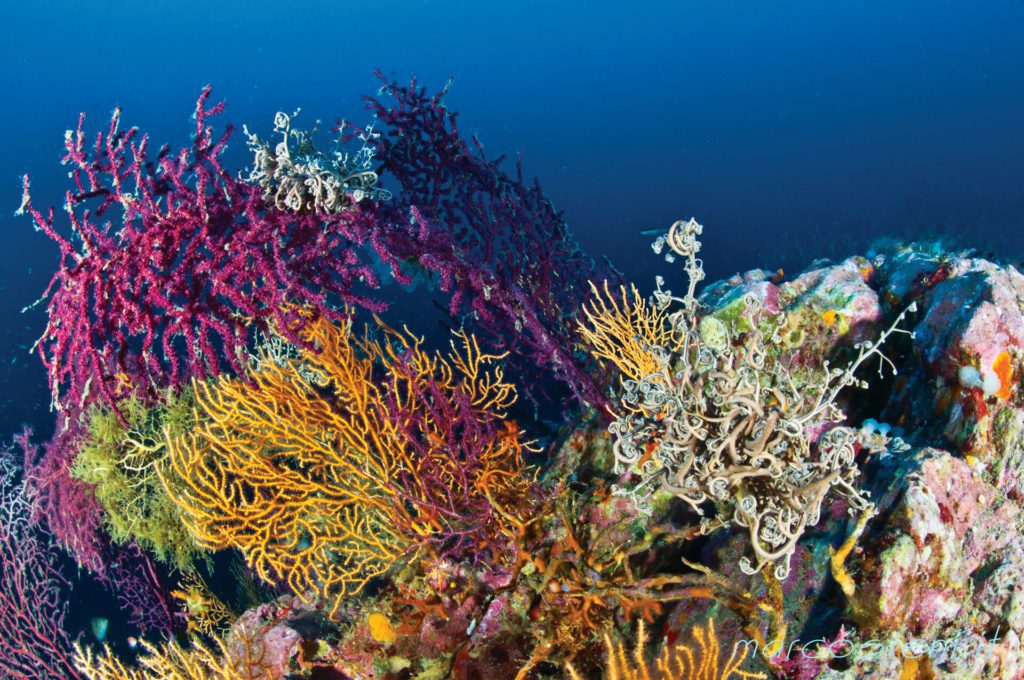
What should divers look out for and or be concerned with before returning to diving?
OC: Pulmonary function!
PG: I think it is safe to say that the current guidelines are capable of preventing divers to return to diving with significant pulmonary/cardia damage. Whether the guidelines are too strict is difficult to say.
OH: It depends on the severity of their COVID-19 infection.
JK: Exercise capability (physical power), decreased spirometry, changes in radiological studies, i.e., High-resolution computed tomography (HRCT)
ARS: The diver's physical condition needs to return to pre-COVID levels.
AT: A gradual return to their ‘normal' level of physical fitness, which can often take longer than anticipated.
UvL: Physical and psychological fitness as before COVID to confirmed by a medical performance analysis (by sports medicine, cardiology, and pulmonary specialists)
JW: See our updated flowchart of the Swiss Underwater and Hyperbaric Medical Society (SUHMS).
Any specific advice for divers experiencing ‘Long Covid’ in its various manifestations?
OC: Divers should have a pulmonary function and cardiac evaluation if they have cardiac problems or previous heart disease
PG: As no specific treatment exists (except physical rehabilitation programs and time), it is important for divers to be patient, and refrain from scuba diving until cleared by their diving medicine specialist. Swimming pool training may be done, although a pulmonary function test would have to be normal for any training using compressed gas, even at very shallow depths because of the risk of air-trapping.
OH: They can resume diving with normal lung function testing and ECG-stress test combined with diving medical advice.
JK: Due to unknown long-term consequences of COVID: divers should conduct more conservative diving and less exercise underwater
ARS: A diver's physical condition needs to return to pre-COVID levels; a through evaluation of cardio-respiratory system is mandatory
AT: I did not see cases of ‘Long Covid’ here in Sharm.
UvL: Our recommendation for two cases of severe and ‘Long Covid’ was not to dive for six months and get a cardiovascular and lung-focused diving medical check beforehand.
JW: As far as known at this moment, the Long Covid syndrome is mainly a deconditioning that happens centrally, which means that it represents kind of a somatoform evolution with symptoms but no signs. As such, an early involvement of a psychotherapy is important—a multimodal approach to the rehabilitation! Some patients with Long Covid have somatic sequelae (lung and heart) and they will not pass the fitness to dive examinations as per the Swiss flow chart.
Under what circumstances, would you recommend that a diver who had Covid-19 seek an additional consultation with a DAN diving physician (a membership benefit) in addition to their medical doctor?
OC: If they were hospitalized regardless of the severity. If they have previous chronic respiratory disease regardless of the severity or have been or not hospitalized. If they remain symptomatic after Covid-19.
PG: I don't believe an actual (in-person) medical consultation is part of the DAN membership benefits. However, obtaining remote advice on the results of the medical examinations performed by or prescribed by their medical doctor, can be done in all cases of doubt.
OH: Patients with pulmonary symptoms or symptoms beyond normal influenza like symptoms should have spirometry and possibly HRCT 12 weeks after infection.
JK: In any case of hospitalization due to COVID-19 with symptoms either pulmonological, cardiac or neurological.
ARS: Always.
AT: In any case where their medical doctor has not examined covid-19 cases before or is not knowledgeable regarding the possible effects that COVID-19 can have on diving.
UvL: Any DAN member who had symptomatic COVID-19 should discuss his/her case with a DAN diving medical officer if possible.
JW: People who have suffered the COVID-19 infection and want to resume diving should contact and see a diving medicine physician for consultation. In Switzerland we have a network of competent diving doctors that covers our area, so that additional consultation with the DAN diving physician would only be indicated if a second opinion is requested.
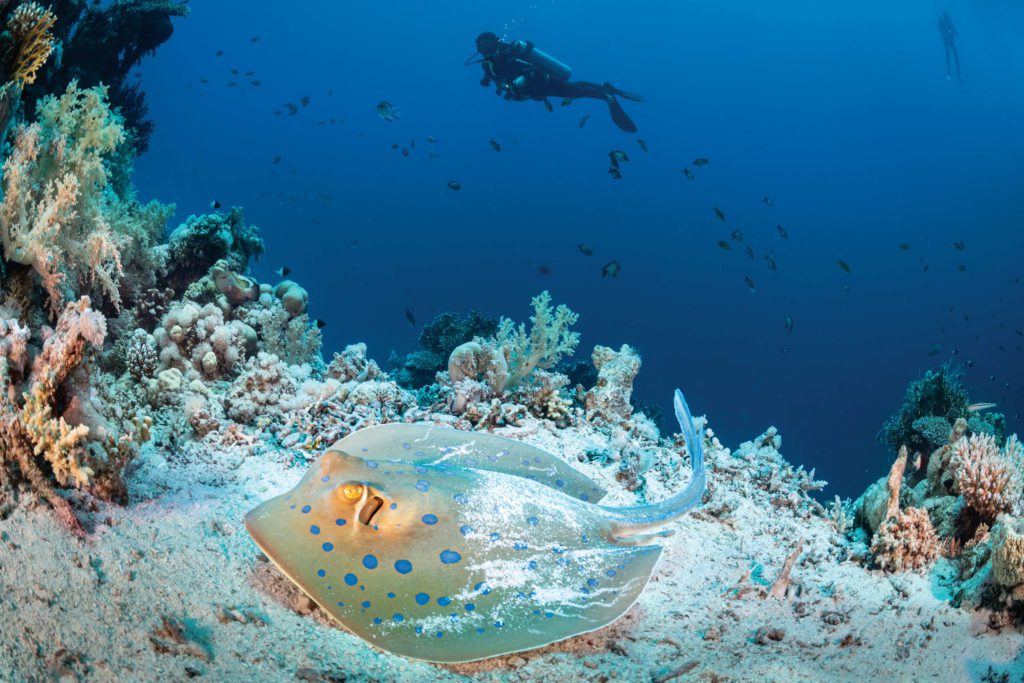
What should divers look out for and or be concerned with after they begin to dive again?
OC: If they get easily tired and or have respiratory symptoms like shortness of breath.
PG: The dives should be built up gradually as there undoubtedly will have been both a lack of training/habits and a physical deconditioning.
OH: Exercise induced dyspnea (shortness of breath) should prompt further examination.
JK: Be aware about increased risk for pulmonary barotrauma, limitations for underwater exercise.
ARS: Lung injury, even in milder infections.
AT: Shortness of breath, especially when overexerting under the water and even more so, if not overexerting under the water! Divers should pay attention to their respiratory rate and breathing gas consumption. The degree of fatigue following a dive after recovery from COVID-19 compared to before the infection.
UvL: A “Big” diving medical check. Body plethysmography and according to the results/pervious lung symptoms, an HR-CT.
JW: Divers must be aware of the potential hazards, especially concerning barotrauma, oxygen toxicity and DCI risk, where we do not know the real risk yet. To date, there is no publication showing any evidence of increased risk.
Is there anything that divers who have had Covid should know about getting vaccinated?
OC: A vaccination will not change or treat any sequelae that eventually exist.
PG: Vaccination is recommended even for those who have had COVID-19.
OH: No. Get vaccinated ASAP.
JK: Just follow the standard recommendation while waiting between COVID-19 and vaccination. Be aware that vaccination does offer a 100% guarantee regarding protection and transmission. Keep regular restrictions (distancing, disinfection, masks).
ARS: Follow the instructions of the Health Care Authorities of your respective country regarding the vaccination after COVID.
AT: I would personally advice the divers receiving the first dose of the vaccine not to dive during the period until they receive the second dose and then wait until they test the antibodies. It is safer for them and for the others to minimize the possibility of being an ‘innocent' carrier.
UvL: No advice currently.
JW: A vaccination is highly recommended as diving is a social activity where the necessary precautions for transmission of virus cannot always be followed strictly.
In your experience, is there a need for any updates to the Belgian Society for Diving and Hyperbaric Medicine (SBMHS-BVOOG) recommendations?
OC: No suggestions
PG: No; they might be somewhat strict, but other (e.g. University of California at San Diego (UCSD) guidelines) are even stricter.
JK: Not at the moment; we need more data.
ARS: I think the recommendations are still valid
AT: I see that the flow of new information is quite impressive and that the amount of fake news is also overwhelming. So, I suggest that the SBMHS-BVOOG or DAN would issue a statement every three months, just stating whether there are any changes needed to be taken into consideration or not. The mutating forms of the Corona virus deserve our full attention.
UvL: There is no validated data for an update of the concerns
JW: Yes: evidence from Swiss clinics and medical specialists show that those hospitalised with oxygen therapy need more than three months for full recovery and therefore we would recommend six months waiting before a reassessment to resume diving. It should be clearly stated that with regards to pulmonary overpressure syndrome risk, oxygen toxicity and decompression sickness, precaution is recommended based on a theoretical hazard; there is no documented evidence at the present time. Therefore, the risk (determined by probability and severity of complications) cannot be determined yet.
Concerning the assessment of divers with pulmonary involvement by COVID disease: The SUHMS workgroup declares CT-Scans as not useful in the assessment for resume diving. Those with pulmonary involvement will certainly have had more than one CT-Scan during the treatment period. To assess the outcome with respect to resuming diving, the important thing is the functional capacity. Therefore, we recommend to augment the lung function testing by adding tests for diffusion capacity and, to perform an ergometry to maximal capacity with oxygen saturation monitoring, which may be accompanied by spirometry before and after tests.
Concerning the assessment of cardiac events: We support the recommended procedures. However, it should be mentioned that during the reassessment by a diving doctor full documentation of clinical details should be available from the hospital period, in particular, the values and evolution of Troponin and Pro-BNP values.
You can see more content from Dan Europe from their regular column, or check out the DAN website for more information about medical advice and diver insurance.
